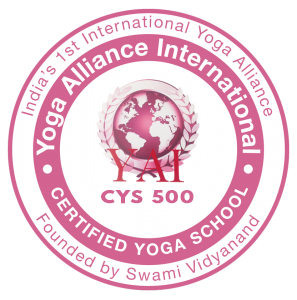Information


Yoga as a philosophy is much more complex and goes beyond our practice on the mat. The philosophy presents us with four paths (karma, bhakti, raja, jnana) which we can choose based on our character and temperament, to take us on a spiritual journey towards self-knowledge. Although these paths are different in their practices, they can also be combined, which often ends up being the case. As we explore one path, another merges into our curiosity and so on.
Let’s look at some practices from each of the four paths and how these can help us embrace change in our life and live more joyfully and calm.
As a physical practice, our asana journey can certainly teach us plenty on the mat which can be transferred into our daily life. Going through the process of learning each asana, gives us the opportunity to remain open and believe in ourselves. Whatever asana style practice you do, it always comes with challenges. The practice itself requires discipline and commitment, consistency and being open to learn. Nobody begins an asana with knowing it, we all have to start fresh and through this process we can expand our knowledge. An asana that seemed impossible at one point, teaches us that with patience, practice and self-belief anything is possible. But we must first start and continue no matter how long the process takes. This journey reflects a new beginning in life and every time we surrender to an asana, we learn to practice being present, in acceptance of all we have right now, in this moment.
The path of knowledge shows us the way to meditation through practicing self-enquiry. This leads one to know one self through witnessing the physical self and through discernment of what is real and what is illusion. Jnana yoga takes so much learning and self-study, practice and observation. But it is in this process we start to open our mind to the infinite possibilities that once seemed limited. The mind is limited by space and time, yet when we realise that we are more than the body and the mind, we can understand that change in the physical world does not affect the true Self. It is simply another experience that we can have as the physical self. Therefore, we surrender to change because it is just a natural cycle of life. What changes is the material, but the Self always remains unaffected. It is always the witness of it all.

The path of action teaches us to be humble yet to use our skills, abilities and talents for the highest good of all. The main teaching of this path is to be of service to the world selflessly. Although it is true we need to earn money to secure at least our basic needs, if we focus on being of service and useful in the world, then this will come. Any selfish act does not bring much good, or at least not in the long run. Change can be overwhelming and we will face uncertainty, but if we remember that our purpose is to serve in our own unique way, we will always find an opportunity to do so. When our intention goes beyond the ego, “for me, for my good only” and we take action to be useful for a collective purpose, we naturally open doors of opportunity for ourselves. We are not attached to a specific job or status but instead we take action with the intention to be purposeful to the world (others, the environment and all creatures of this world).
The path of love teaches us devotion to the Divine. Whilst yoga is not a religion, acording to Bhakti yoga, to know the higher Self, we first need to realise the idea of this Divine essence, to understand that we are not the body or the mind. So devotion and unconditional love to a higher state/Divine, later on the spiritual journey, brings us to the realisation of “I am that”, and “you are that”. The understanding that all beings and material existence are this Divine essence. Therefore, by practicing Bhakti, love becomes the intention of all we experience, think, say and do. This path is about surrendering the ego and when we are faced with change, ego can feel very uncomfortable. Therefore, out of fear we can resist the unknown. But knowing that we are this Divine infinite consciousness, there is no fear. We approach all circumstances of life with faith and a deeper knowing that no matter what, we are not bound by it or anything on the physical realm.